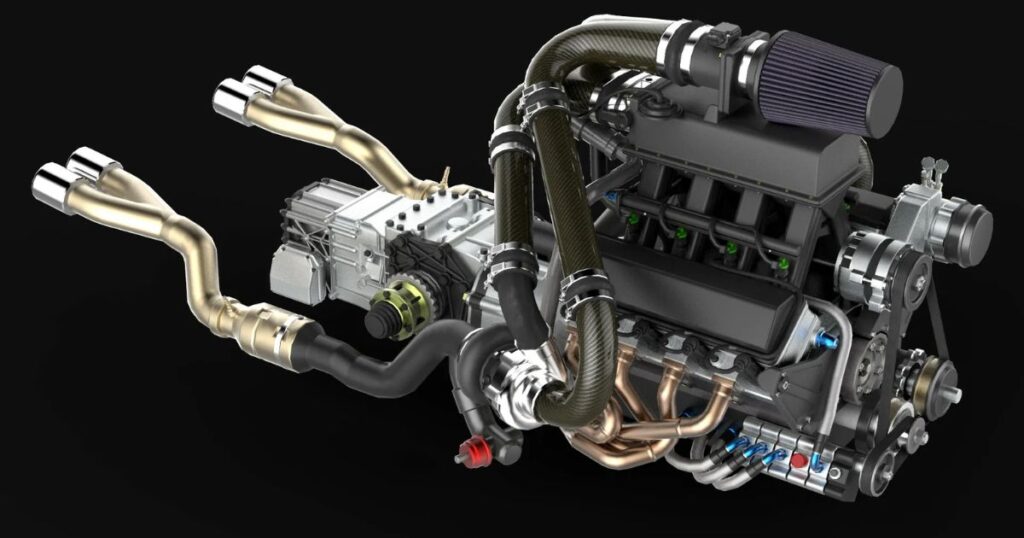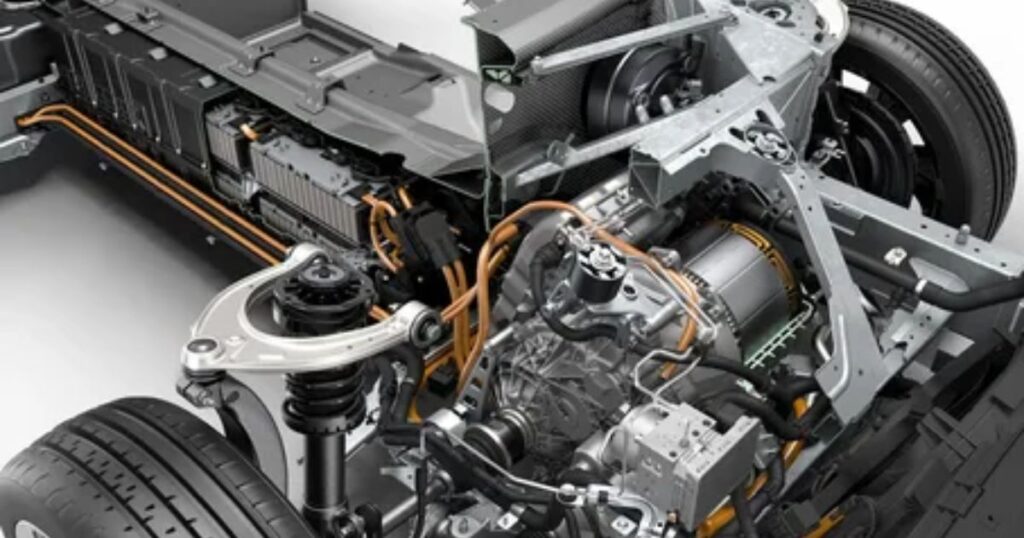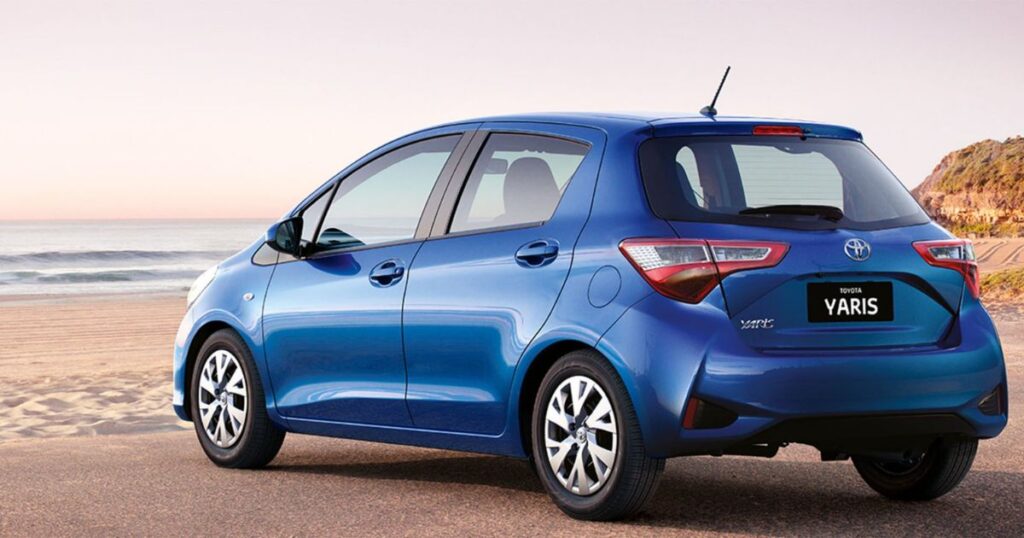The hybrid engine is a breakthrough in modern automotive technology. It combines the best of both worlds a gasoline engine and an electric motor. This combination makes hybrid vehicles more fuel-efficient and environmentally friendly.
As the demand for eco-friendly transportation increases, understanding how hybrid engines work is essential.
What is A Hybrid Engine?
The hybrid engine consists of two main parts. The first is a traditional internal combustion engine (ICE) that runs on gasoline or diesel. The second is an electric motor powered by a battery. These two power sources work together to make driving smoother and more efficient.
- The gasoline engine takes over when high power is needed, such as during acceleration.
- The electric motor handles low-speed driving, like in city traffic.
By using both sources of energy, hybrid vehicles reduce fuel consumption and lower emissions. This combination makes them an ideal choice for eco-conscious drivers.
How The Hybrid System Works
The hybrid system works by switching between the gasoline engine and the electric motor. Sometimes, both work together to give the car extra power. The system decides which power source to use based on driving conditions.
For example:
- At low speeds, the electric motor takes the lead.
- At high speeds, the gasoline engine becomes the primary power source.
- During acceleration, both the electric motor and gasoline engine can work together.
It is this balance that makes hybrid vehicles so efficient and versatile.
Types Of Hybrid Engines

There are several types of hybrid engines, and each one works slightly differently.
- Mild Hybrid: The electric motor assists the gasoline engine but cannot power the car on its own.
- Full Hybrid: The electric motor can power the vehicle by itself at low speeds, while the gasoline engine takes over at higher speeds.
- Plug-in Hybrid: The electric motor is more powerful, and the car can be plugged into a power source to charge the battery.
Each type offers different levels of fuel efficiency and electric driving range.
Regenerative Braking System
One of the most innovative features of hybrid engines is the regenerative braking system. It works by converting kinetic energy into electricity.
- The energy generated when you apply the brakes is usually wasted as heat.
- In a hybrid vehicle, this energy is captured and used to recharge the battery.
This process reduces the need to rely solely on external charging and extends the battery life.
The Battery And Electric Motor
The heart of a hybrid vehicle is its electric motor and battery. The battery stores the energy that powers the motor, while the motor helps reduce fuel consumption.
- The electric motor powers the car during low-speed driving.
- The battery recharges through regenerative braking or by drawing power from the gasoline engine.
The efficiency of the motor and battery allows hybrid vehicles to use less fuel and produce fewer emissions.
How The Engine Switches Between Gasoline And Electric Power
One of the key features of a hybrid vehicle is its ability to switch between power sources seamlessly. This process happens automatically and is controlled by a computer system.
- When the car needs more power, such as during acceleration, both the electric motor and gasoline engine work together.
- At cruising speeds, the gasoline engine takes over.
- During stop-and-go traffic, the electric motor provides power, reducing fuel consumption.
This flexibility is what makes hybrid engines so efficient and reliable.
Benefits of A Hybrid Engine

Hybrid engines offer several benefits, making them a popular choice among environmentally conscious drivers.
- Fuel Efficiency: Hybrid vehicles use less fuel than traditional gasoline-powered cars.
- Lower Emissions: By relying more on electric power, hybrid cars produce fewer emissions.
- Cost Savings: Over time, hybrid vehicles can save you money on fuel.
- Quiet Operation: When running on electric power, hybrid vehicles are much quieter.
It’s clear that hybrid engines are a smart choice for both the environment and your wallet.
Challenges of Hybrid Engines
While hybrid engines have many benefits, they also come with a few challenges.
- Higher Initial Cost: Hybrid vehicles tend to be more expensive than traditional cars.
- Battery Maintenance: The battery in a hybrid car may need to be replaced, which can be costly.
- Charging Infrastructure: For plug-in hybrids, access to charging stations may be limited in some areas.
Despite these challenges, the long-term benefits of owning a hybrid often outweigh the drawbacks.
How Hybrid Engines Improve Fuel Efficiency
The combination of an electric motor and a gasoline engine makes hybrid vehicles highly fuel-efficient. By using the electric motor at low speeds and switching to the gasoline engine for more demanding tasks, hybrids reduce overall fuel consumption.
- City Driving: In stop-and-go traffic, hybrids rely more on the electric motor, which saves fuel.
- Highway Driving: At higher speeds, the gasoline engine becomes more efficient, reducing fuel usage.
This efficiency is one of the primary reasons why hybrids are so popular.
Environmental Impact Of Hybrid Engines
Hybrid engines have a lower environmental impact compared to traditional gasoline engines.
- Reduced Emissions: Hybrids emit fewer greenhouse gases, helping to combat climate change.
- Energy Efficiency: The combination of electric and gasoline power means less energy is wasted.
- Conservation of Resources: By using less fuel, hybrids help conserve fossil fuels.
For eco-conscious drivers, hybrid engines offer a way to reduce their carbon footprint.
Maintenance of Hybrid Engines
Maintaining a hybrid engine is similar to maintaining a traditional gasoline engine, but there are a few differences.
- Battery Health: The battery in a hybrid car should be monitored and maintained to ensure it lasts as long as possible.
- Brake Maintenance: The regenerative braking system may require different maintenance than a traditional brake system.
- Software Updates: Some hybrid vehicles may need software updates to keep the engine and motor running efficiently.
Regular maintenance is key to keeping your hybrid vehicle running smoothly.
Future of Hybrid Engines

As technology advances, hybrid engines will continue to evolve.
- Improved Battery Life: Future hybrids may have longer-lasting batteries that can store more energy.
- More Efficient Motors: Electric motors will likely become more powerful and efficient, further reducing fuel consumption.
- Increased Use of Renewable Energy: Future hybrids may be able to run on renewable energy sources, such as solar power.
The future of hybrid engines looks bright, with many exciting innovations on the horizon.
Are Hybrid Engines Worth It?
Many people wonder if the extra cost of a hybrid vehicle is worth it.
- Fuel Savings: Over time, the money saved on fuel can offset the higher initial cost.
- Environmental Impact: For those concerned about the environment, the lower emissions of a hybrid vehicle make it a worthwhile investment.
- Resale Value: Hybrid vehicles often have higher resale values than traditional cars.
For many drivers, the benefits of owning a hybrid vehicle outweigh the costs.
Frequently Asked Questions
How long do hybrid engine batteries last?
The batteries in hybrid engines are designed to last a long time, often up to 100,000 miles or more. However, battery life can vary depending on driving habits and maintenance.
Can hybrid vehicles run on electric power alone?
Some hybrids, especially plug-in hybrids, can run on electric power alone for short distances. Full hybrids can use electric power at low speeds but switch to gasoline for higher speeds.
Do hybrid vehicles require special maintenance?
While hybrid vehicles do require regular maintenance, such as oil changes and brake checks, the electric motor and battery system may need specialized care.
Are hybrid vehicles more expensive to buy?
Hybrid vehicles are often more expensive than traditional gasoline-powered cars due to the additional technology involved. However, the long-term fuel savings can make up for the higher initial cost.
Conclusion
The hybrid engine is a remarkable innovation that combines gasoline and electric power to create a more efficient and environmentally friendly vehicle. By reducing fuel consumption and emissions, hybrid vehicles offer a glimpse into the future of transportation. As technology continues to improve, the benefits of owning a hybrid vehicle will only increase.

Hello, Ride here I’m excited to share everything about hybrid cars. We provide helpful Tips And guide about hybrid cars.











